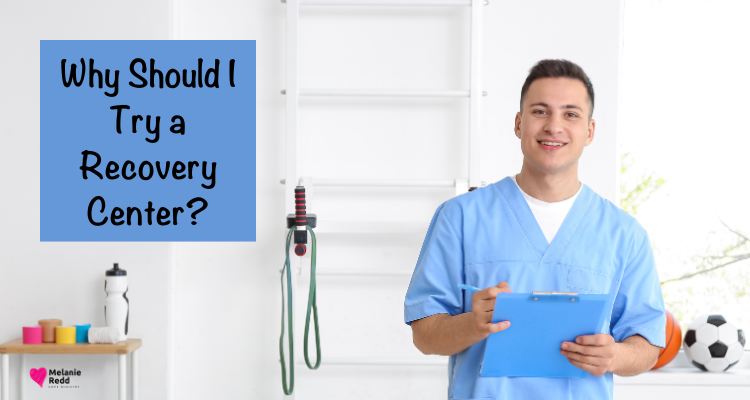Why Should I Try a Recovery Center?

Why Should I Try a Recovery Center?
Today, health problems and addiction concerns are more common than ever before due to the demands of contemporary life and various influences, such as genetic factors.
Truly, these can contribute to people facing mental health difficulties and dependence on substances to cope with these challenges. Also, recovery centers play a vital role by offering a ray of hope to individuals striving to regain control over their lives.
Comprehensive Treatment and Support
First, recovery facilities, such as the Silver Lining Recovery Center, stand out for their personalized treatment programs that cater to each individual’s needs when it comes to tackling addiction and mental health issues—a departure from the “one-size-fits-all” approach.
Even more, rehabilitation facilities enlist a group of experts, such as physicians, therapists, counselors, and support personnel, to establish a supportive network.
Also, this teamwork ensures that individuals receive comprehensive care that addresses both the symptoms and underlying causes of their conditions.
Safe and Structured Environment
Second, recovery centers provide an advantage through the organized environment they offer to those dealing with addiction or mental health challenges. Even more, these facilities create a sense of regularity by offering scheduled therapies and activities, such as support sessions, to their clients.
Also, this structure is crucial for those who have experienced periods of unpredictability and instability.
By promoting routine, recovery centers help individuals regain a sense of control over their lives. Truly, this is essential for a sustainable recovery in the long term.
Access to Various Therapies
Third, rehabilitation facilities offer a range of methods to support recovery and personal development. These include one-on-one counseling sessions and group therapy. Also, they can offer cognitive behavioral therapy (CBT), and holistic practices, such as yoga and meditation.
In addition, recovery centers provide a wide array of treatment options to accommodate clients’ preferences and increase the chances of successful recovery. This variety also allows clients to develop coping mechanisms and strategies they can use after leaving the recovery center.
Community and Peer Support
Fourth, recovery centers often provide a community that is frequently overlooked in its importance. They offer a sense of belonging to individuals on their journey to healing from addiction and mental health issues.
In addition, many clients, who often feel isolated and disconnected, find strength in shared experiences with others facing similar struggles.
Even more, peer support and participation in group therapy sessions enable people to exchange their stories and insights and offer mutual encouragement in a community setting. This communal atmosphere can provide the support and inspiration needed to navigate the path to recovery.
Also, knowing that they have companions in their challenges can greatly strengthen an individual’s determination to achieve and maintain sobriety and emotional health.
Focus on Long-term Recovery
Fifth, rehabilitation facilities go beyond immediate recovery and focus heavily on providing individuals with the resources necessary for lasting success. By offering education and fostering skill development, patients learn how to cope with stress, manage triggers, and sustain healthy habits. These skills are vital in preventing relapses and ensuring ongoing mental well-being and sobriety.
Following completion of treatment at recovery centers, it is common for individuals to take advantage of aftercare programs for continued support. These programs typically include check-ins, ongoing therapy sessions, and participation in alumni support groups—all aimed at helping individuals maintain their progress.
Family Involvement and Support
Sixth, family support is critical for recovery, and many treatment facilities involve families in the healing process. By educating them about addiction and mental health issues, families can positively influence recovery outcomes, as they play a significant role in the individual’s support network beyond the facility.
Also, recovery programs often include family therapy sessions and educational workshops designed to promote communication and understanding among family members. These efforts help build stronger, more supportive relationships, which are crucial for long-term recovery success.
Final Thoughts – Why Should I Try a Recovery Center?
Finally, rehabilitation facilities play a significant role in combating addiction and mental health struggles. They offer thorough, organized, and personalized treatments to address the various aspects of these challenges.
By creating a supportive environment, providing therapeutic options, and fostering a sense of belonging, recovery centers set the stage for lasting recovery and a more hopeful future.
Recovery is a journey that requires time and effort; however, with the right assistance and resources in place, individuals can experience significant and lasting change. Rehabilitation facilities not only provide the tools for healing but also instill hope. Truly this hope gives reassurance that recovery is achievable and that a rewarding life is within reach.
Were you encouraged by what you read?
Then, would you share this article with a friend, co-worker, or family member?
Or, maybe you can send it to a friend or family member?
This blog occasionally uses affiliate links and may contain affiliate links.
Additionally, Melanie Redd is a participant in the Amazon Services LLC Associates Program.
This is an affiliate advertising program designed to provide a means for sites to earn advertising fees. These are earned by advertising and linking to amazon.com.
Also, for more on my disclosure policy, click HERE.
© Melanie Redd and Hope Ministry, 2024. Unauthorized use and/or duplication of this material without express and written permission from this blog’s author and/or owner is strictly prohibited.
Further, excerpts and links may be used, provided that full and clear credit is given to Melanie Redd and Hope Ministry.
Please give appropriate and specific directions to the original content.




0 Comments